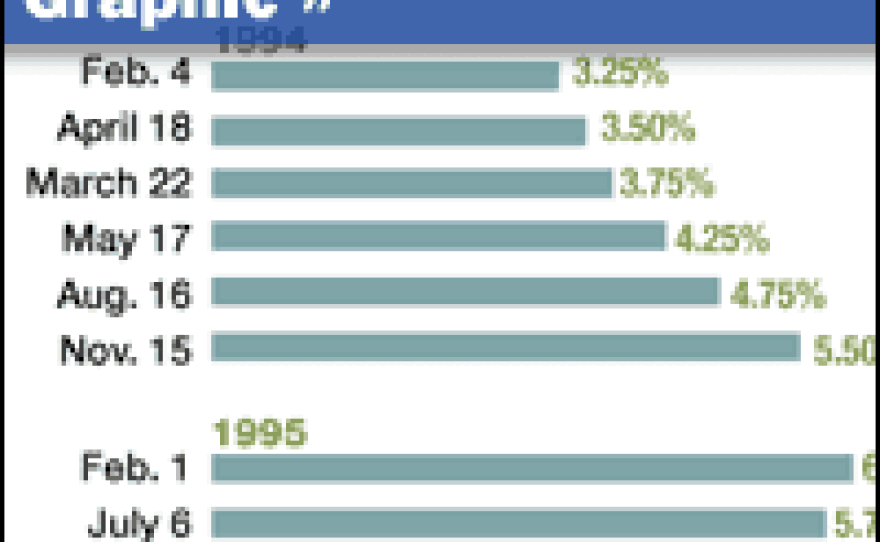In another day of turmoil for the financial markets, the Dow Jones Industrial Average lost more than 100 points on Tuesday — although that was a bit of a rebound from earlier in the day, when the Dow was off more than 400 points.
In Washington, the Federal Reserve Board cut a key interest rate by three-quarters of a point, expressing concern about the possibility of a recession. In addition, President Bush met with congressional leaders to try to build a consensus on legislation to stimulate the economy.
Bush expressed his confidence that all sides would be able to reach an agreement on an economic stimulus proposal.
"I believe we can find common ground to get something done that's big enough and effective enough so that an economy that is inherently strong gets a boost," he said.
On Capitol Hill, lawmakers continued to discuss the parameters of the stimulus package. House Majority Leader Steny Hoyer praised the Fed's action and said Congress should follow suit.
"The Federal Reserve has taken very significant action today, and the way I put it is we need to do something that's simple, that everybody can understand, that's fast and that's focused," he said.
While lawmakers are focused on the idea of putting cash in the hands of consumers, there's still no consensus on how best to do that. Democratic Sen. Max Baucus of Montana, who chairs the Finance Committee, suggested not only giving rebates to individuals and couples, but giving more to families with children.
But there were some notes of caution being heard on the Hill on Tuesday. One was that people shouldn't head to their mailboxes just yet. The director of the Congressional Budget Office, Peter Orszag, told the Senate Finance panel that while any stimulus should be approved quickly, the Internal Revenue Service might not be able to cooperate.
"A major administrative issue with rebates involves when the checks could go out, given that the IRS is busy with tax filing season," he said. "It will be a major challenge to issue checks before May or June at the very earliest."
Meanwhile, fiscal conservatives in Congress were warning their colleagues not to get carried away.
"I just wanted to raise this sort of red flag of reason before we step onto this slippery slope of a stimulus package, which could easily end up being primarily a spending package for the purposes of addressing whatever anybody happens to deem to be a good political spending issue," said Sen. Judd Gregg (R-NH).
Bush said he was realistic about how much time it will take Congress to send him a stimulus proposal. Senate Majority Leader Harry Reid said he hoped it could be accomplished in the next three weeks.
Copyright 2022 NPR. To see more, visit https://www.npr.org. 9(MDAzMjM2NDYzMDEyMzc1Njk5NjAxNzY3OQ001))







